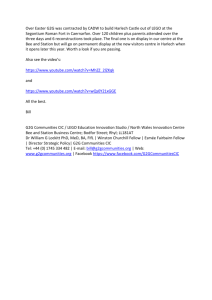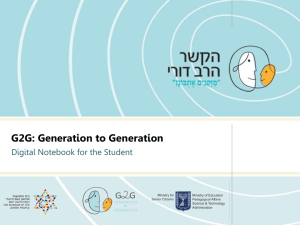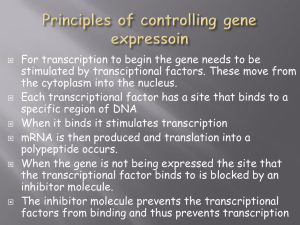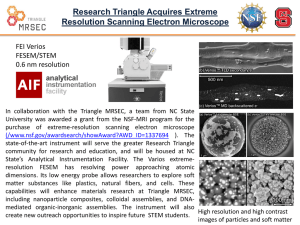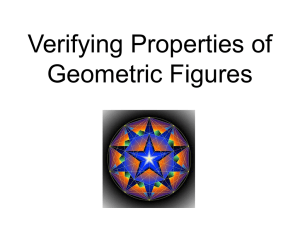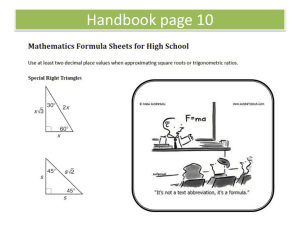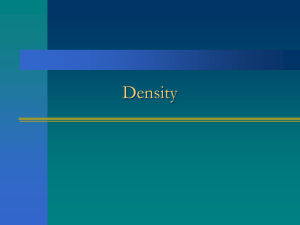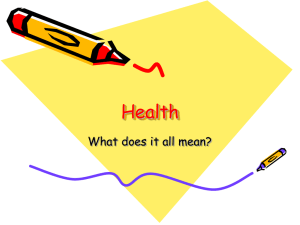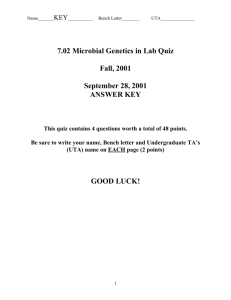Slide 1
advertisement
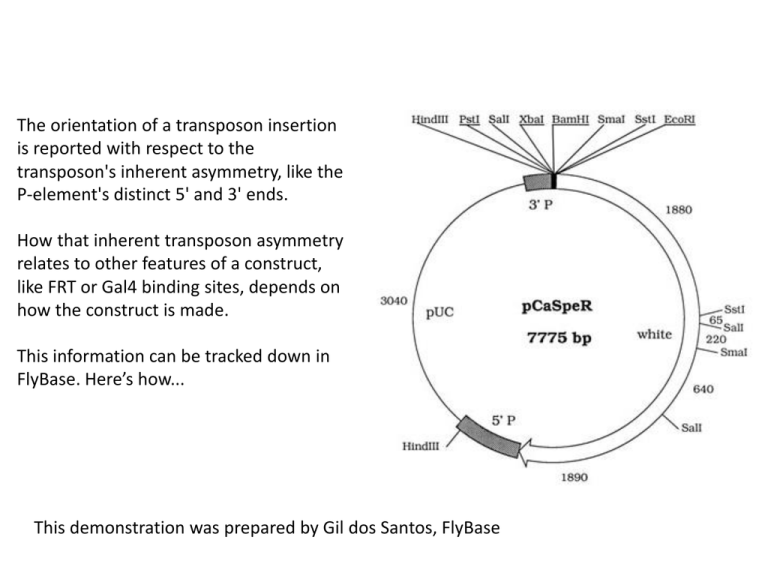
The orientation of a transposon insertion
is reported with respect to the
transposon's inherent asymmetry, like the
P-element's distinct 5' and 3' ends.
How that inherent transposon asymmetry
relates to other features of a construct,
like FRT or Gal4 binding sites, depends on
how the construct is made.
This information can be tracked down in
FlyBase. Here’s how...
This demonstration was prepared by Gil dos Santos, FlyBase
I want to drive ectopic “cbs” expression:
3’ HP21640
5’
There are 2 EP/EP-like insertions in the region. If the triangle points up, it means that
the P5’-to-P3’ direction is oriented on the “minus” strand, relative to the genomic
scaffold.
We’ll need to track down info about each kind of construct, {EPg} vs {EP} in FlyBase.
Click on the blue triangle for the insertion of interest...
Clicking on the triangle for HP21640
takes you to the transposon insertion
report.
From there, look for the “Inserted
element” link. Follow that to get
info about the construct itself.
The “Segments & Size” section of the construct
report describes what’s in the EP element,
relative to the P5’ and P3’ ends. Click on each
segment to get more info:
e.g., “CaSpeR_P5” has the mini-white cassette.
e.g., The GAGA and UAS sites are nested just
inside of the P3’.
I would infer that EP-driven transcription
proceeds through P3’. See references for more
info.
You may find the GDP’s maps of commonly used
constructs helpful.
Figuring out P{EPg}HP21640
{EPg}-driven
transcription
EP-driven
3’ HP21640
5’
From the info about the “EPg” construct, I would infer that transcription of this HP21640
insertion proceeds through the P3’ ends, away from the “cbs” gene.
Figuring out P{EP}G2391
{EP}-driven
transcription
EP-driven
5’
G2391
3’
There’s another EP-type element in the region: G2391. Following the same procedure, I
figured out that the GAGA and UAS sites are nested just within P3’ end.
The blue triangle points down, meaning the 5’-to-3’ orientation of the P-element is along the
plus strand (relative to the genome). This is the one I want.
